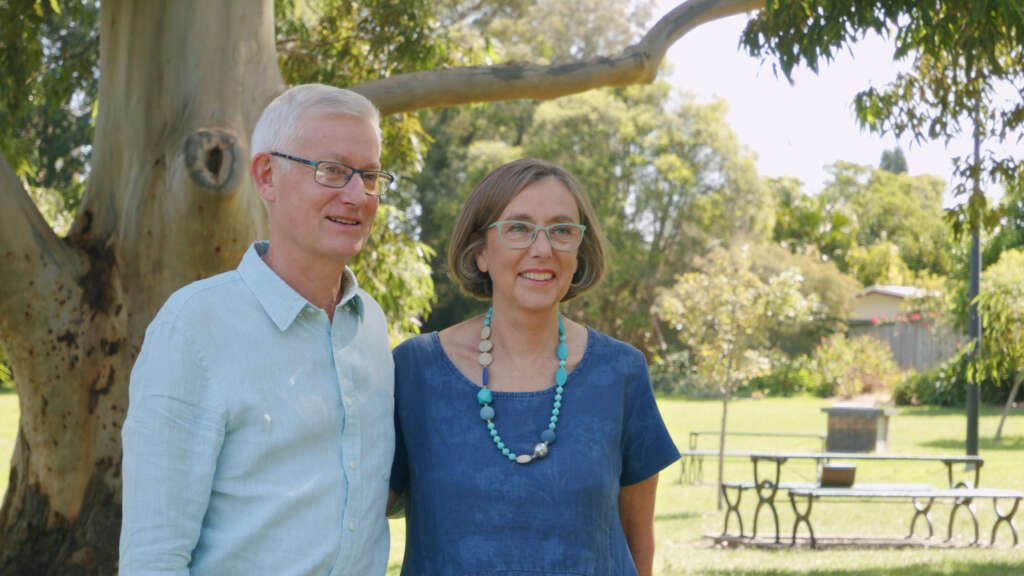Languishing? Help to deal with 'the middle child' of mental health
Wellbeing and resilience for Christians
The COVID-19 pandemic has put mental health on everyone’s radar.
But while awareness about diagnosed mental health conditions, such as anxiety and depression, has increased, and the stigma around these issues has decreased, many of us are still not good at discussing the “grey areas” of mental wellbeing.
So when a New York Times article by US psychologist Adam Grant identified the “blah” feeling many were experiencing during the pandemic as “languishing”, the idea went viral.
“With COVID, a lot of people thought I’m feeling down, I must be depressed,” says Sarah Condie – Co-Director of the Mental Health & Pastoral Care Institute (MH&PCI) in Sydney – noting the common misunderstandings around mental health.
“But in fact, all of us are on a mental health spectrum,” her husband and fellow co-director Rev. Dr Keith Condie explains.
“So you can be on that languishing end where you don’t have a diagnosed mental health condition, but you’re not bouncing out of bed. Some writers talk about this as ‘the middle child of mental health’ – you don’t have a mental illness but you’re not on top of the world with wellbeing. So being in that state, what can we do to help ourselves?”
“Sometimes Christians are living and operating in a manner that is impacting their mental health.” – Keith Condie
The Condies’ response to this need has been to develop a new online course titled Press On: Building Resilience & Mental Wellbeing, to be launched on this World Mental Health Day, October 10. Aimed at helping “the ordinary Christian” to “maintain mental wellbeing so they can continue faithfully in Christ’s service”, the seven-week course can be used in small groups, Bible studies or individually. The sessions offer practical resources and activities under the acronym “PRESS” (P – physical, R – relational, E – emotional, S – skills, S – spiritual). Each session has insights from psychological science, as well as a Bible reflection and prayer, and space for participants to create their own mental wellbeing action plan.
“The course is not designed for people who have a diagnosed mental health condition. We want them to get the professional help that they need,” Keith clarifies.
“It’s really designed for ordinary Christian people. Just as we’re being encouraged to take good care of our physical health, this is taking good care of our mental health … It’s about being able to function at our optimum. While recognising there are some factors we can’t control – like our genetic background and the life experiences that we’ve been through – it’s about making the most of the factors that we do have some control over, so that we can continue to function as effectively as possible in the service of our Lord.”
Many Christians, traditionally, aren’t great at caring for their own mental wellbeing, the Condies have found in their church ministry and pastoral experience.
“A lot of Christians think ‘I’m here to serve the Lord. I’ll put my head down and work as hard as I possibly can. And as long as I don’t crash and burn completely, that’s fine,” says Keith. “But unfortunately, I think sometimes Christians are living and operating in a manner that is impacting their mental health.
“OK, they might not fall into serious depression or anxiety, but their mental health is such that it’s impacting their relationships. So they’re more irritable and grumpy. They’re not as loving. It might impact their work, so they’re just not as effective or productive as they could be.”
Keith points to an old saying among the Christian community, “it’s better to burn out than rust out in the Lord’s service”.
“There’s some truth to that, but there’s also a huge danger,” he warns. “When we think the Christian life is simply about doing more all the time, it completely ignores the reality that God has given us bodies and minds which have limitations, and he’s deliberately given us limitations. That’s part of our humanity. And that’s part of what reminds us about our dependence upon God and how it’s not all up to us.”

Keith and Sarah Condie
On top of Christian ministry, Sarah notes the chronic stress caused by the pandemic that many people are currently living with – not only health care and other frontline workers, but millions of Australians in lockdown.
“Particularly for people living on their own, that’s been so hard. My mother lives on her own and she remembers World War Two, but she said this is harder than anything she’s had to deal with,” says Sarah.
“There’s been a lot of grief and a lot of loss,” Keith adds. “There’s the loss of normal social connections. Some people have lost their jobs and financial security. They’ve lost privacy in their own home, with children around all the time. They’ve lost normal routines.
“All of these things are stressful because we function well with habits and routines and order … And the sorts of activities and resources that normally help manage some of our stress response, particularly connecting with others, have been taken away from us. So again, stress levels go up.”
For those in a state of “languishing”, the key to preventing more serious mental health consequences, according to the Condies, is twofold: firstly, to understand mental health and wellbeing, along with the impact of stress, and, secondly, to develop healthy habits and routines.
Recognise the warning signs of chronic stress
“It’s about being tuned in to what’s happening in that mental headspace, even when it’s not really severe. I think this is something that perhaps we don’t have good language around and we don’t have a good understanding about as Christians – until it’s too late,” says Keith.
Some of the warning signs of chronic stress listed by Keith and Sarah include:
- Overreacting to small incidents that previously wouldn’t have much impact on you
- Changes in appetite – either not wanting to eat or eating too much
- Irritability, feeling on edge, feeling angry
- Having trouble concentrating, for example when reading a book
- Difficulty sleeping and changes in sleep patterns
- A loss of productivity
- Feeling emotionally more fragile, crying more often
- Feeling tired all the time
- Experiencing “brain fog”
Take small steps to change your habits
The good news, says Sarah, is that burnout, and even languishing, is not only preventable but it is also treatable – using small, slow steps.
“If we can recognise unhealthy habits and build in habits that actually promote wellbeing, then we will be more effective and we can keep serving,” she says.
“I think as soon as you set your eyes on a high crossbar and say, ‘OK, I’m going to completely turn my life around’, that just sets you up to fail,” warns Keith. “And then when you fail, that’s very demotivating. Instead, little wins can make a big difference. So start by doing something small, which creates a feedback loop in your brain, which makes you think ‘I actually enjoyed that and I feel a bit better, a bit calmer.’
“When we’re chronically stressed, the thoughts that are running through our head tend to be stuck in the negative. So doing some of these little things can start to turn that switch, so we pay attention to the positive things. Over time, this makes a significant difference.”
Some of the “little things” Keith and Sarah suggest include:
- Social connection – make a phone call or have a FaceTime chat with a friend or relative
- Go for a walk in a natural setting – like a park – and take time to simply pay attention to and enjoy the beauty of your surroundings
- Reactivate your senses – ask yourself, “What can I see?’ What can I hear? What can I feel? What can I taste? What can I smell?”
- Do something creative, like sewing, knitting or a jigsaw puzzle
- Connect with other Christian believers. “Don’t give up on going to church. Don’t give up on being part of your small group,” Sarah advises.
- Make time to connect with God
- Be kind to yourself, just as God is kind to us in our weakness, and rest in God’s grace
In giving this advice, Keith cautions, “If someone is really at a low point, first of all, we really encourage them to go and see their GP and perhaps talk to a mental health professional to make sure they’re actually safe and OK.”
From languishing to flourishing
The Condies have a vision of a Christian community with healthy mental wellbeing and resilience that will sustain them over the long haul of ministry and through the challenges of life.
“Wouldn’t it be wonderful if the secular world looked at the Christian population and saw people who were flourishing – people who are able to say ‘it is well with my soul’?” Sarah asks.
“It’s not like they don’t go through hard things, but they seem to know how to cope. They still experience all of the hardship, but they seem to experience it in a different way. They have a support team around them, the church, people who care for them in the midst of that, they have a hope that transcends.”
Keith agrees: “It’s not like ‘let’s pretend everything’s fine’, but at the same time, Christians can still have a real peace in their heart, a joy, and still have a concern for others in the midst of challenges. It’s about being able to navigate the challenges of life in a way that’s healthy and wise, where they have a deep sense of fulfilment, even in the midst of the tragedies of life.
“As Sarah said,” Keith concludes, “wouldn’t that be wonderful if that’s what the Christian life looked like?”


